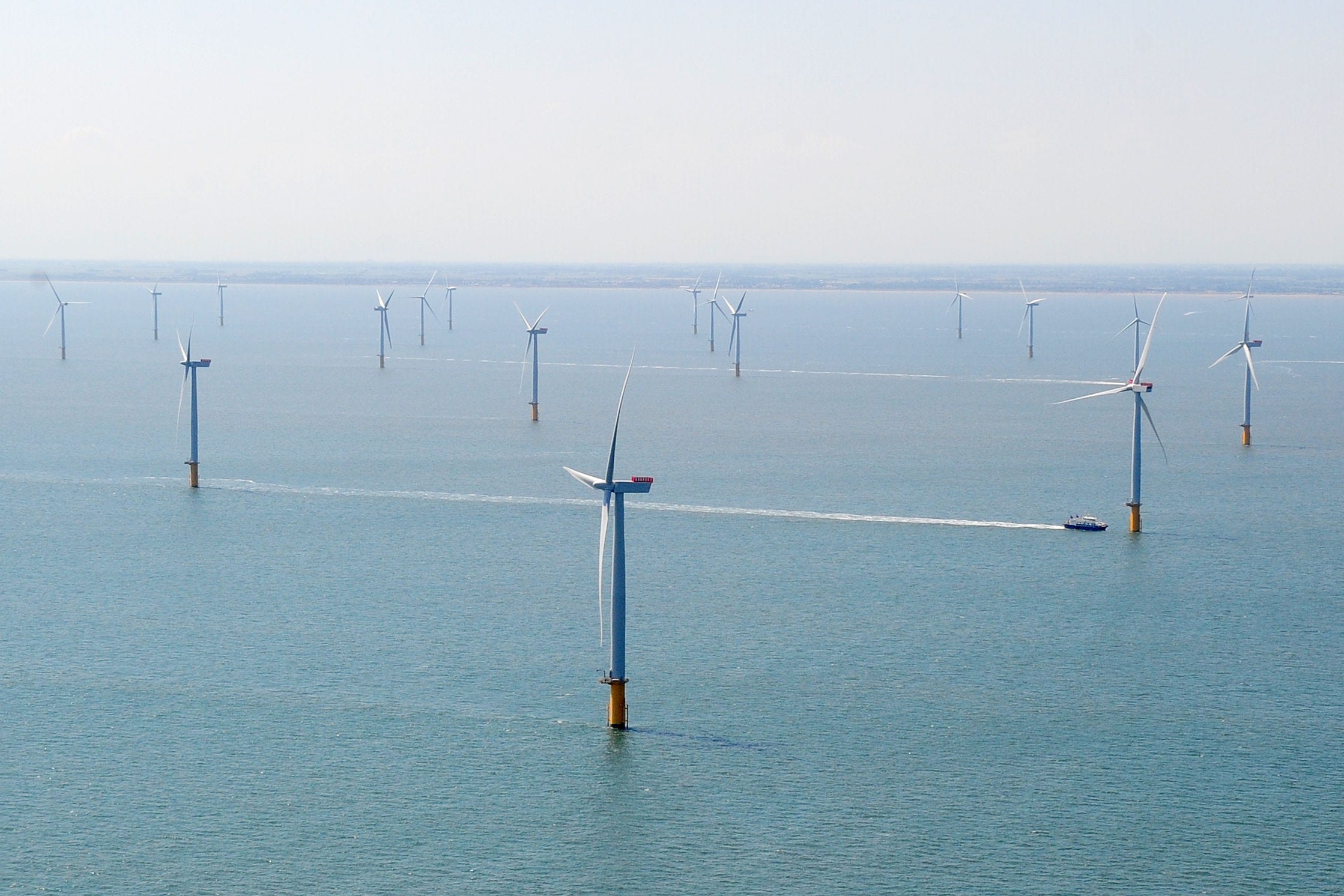Offshore wind roars back – but Ed Miliband has work to do to hit green power targets
The previous clean energy auction ended in disaster, so this is a notable – and welcome – change. But the energy secretary’s work is not yet done, writes James Moore


Ed Miliband performed a wind dance, and lo and behold – it’s blowing again offshore, with nine “new” contracts awarded in the most recent clean energy auction. That’s quite a turnaround, given that the previous one ended in a fiasco and no one came forward to bid for what was up for grabs.
Greenpeace described the latter as “a catastrophic failure, and in fact the biggest disaster for clean energy in almost a decade”. Hyperbole? Not really, no. The failure to exploit the impressive capacity these islands have, and the very obvious problems with the main alternative (gas, as we’ve all learned to our cost) is almost criminally negligent. At least, it ought to be.
So, what’s changed? Is the government’s chest-beating press release talking about records being “smashed” justified? And does this mean all the excitable talk about Britain becoming a green energy “superpower” is now realistic?
Well, up to a point. The answer to the first of those questions is: money. The last auction was an embarassing flop (at least in the case of offshore wind) because the suppliers reckoned they couldn’t make a turn at the prices on offer.
The auction works by offering developers subsidies for clean electricity projects across Britain, with a “built-in design to keep costs low for billpayers”. That means there is a cap imposed and they then bid against each other for how much they think they need (or can get away with).
The trouble is, the industry has been suffering from inflation in its supply chain. This should not have come as a massive surprise given the number of industries in the same boat. The last cap was set too low and the bidders are not charitities. Even if they were, they couldn’t afford to pour money into the sea. So they sat on their hands.
In fact, I hear that it had got to the point where some were considering bailing on existing deals because paying the penalty for this would ultimately save them money.
The announcement says part of the current round included “securing both what will be Europe’s largest and second largest wind farm projects, Hornsea 3 and Hornsea 4 off the Yorkshire coast”. From that we can conclude, extra capacity was added to the existing contracts. Economies of scale come in. Problem solved.
“These successful results come after the government last month moved quickly to increase the budget by 50 per cent – a record funding uplift and seven times bigger than the previous round’s pot,” said the department, which deserves credit for taking the necessary action to get things moving again. Doug Parr, Greenpeace’s head of policy, tells me the bids came in below the maximum price allowed and, crucially, below the price of gas.
Of course there’s a “but”...
To hit its ambitious 2030 decarbonisation target, the government needs a lot more like this. Greenpeace reckons about twice the 5 gigawatts (GW) of offshore wind projects secured is needed just to keep things on track.
Like the previous auction, there were developments agreed in other areas: a total of “131 new green infrastructure projects” per the announcement, including “significant numbers for onshore wind, solar and tidal energy, which will power the equivalent of 11 million British homes”. The total was 9.6GW.
The addition projects will be nice to have, and given the nature of renewables, it’s a good idea to have multiple sources all pumping out power. But offshore wind is the big kahuna burger – the bedrock of the strategy; the one that counts.
How can the government achieve the step change it needs to hit its targets? I hardly need to state the answer to that, because you, dear reader, already know what it is: Duh, money.
“We know there’s more work to be done and there’s no quick fix. The energy secretary is working with industry to accelerate ways the Contracts for Difference scheme and other energy policies can be expanded even further, so that more renewable energy, including offshore wind, can be connected to the grid, and quicker,” I was told by the department when I asked the question.
I’m not sure I completely agree with the “no quick fix” line. Offer more money and they will come, as this exercise proves.
Part of the problem, the impressively knowledgable Mr Parr tells me, is the way auction prices have been set by reference to the gas price. You obviously want renewables to be economic with respect to its rivals. Public support for decarbonisation efforts might otherwise wane and a bevy of empty-headed but very noisy critics would prey upon that.
At the same time, gas prices have risen considerably and no one really expects them to go back to the pre Ukraine war levels, anytime soon.
Offshore wind is a winner because it is reliable, there is a lot of it, and it will pay a key role in liberating the UK from its dependence on volatile wholesale energy markets and from buying gas from places that sometimes have a less than savoury reputation. More could economically be offered while still keeping it competitive. The government has made a good start. Now would be a fine time to build on that.






Join our commenting forum
Join thought-provoking conversations, follow other Independent readers and see their replies
Comments